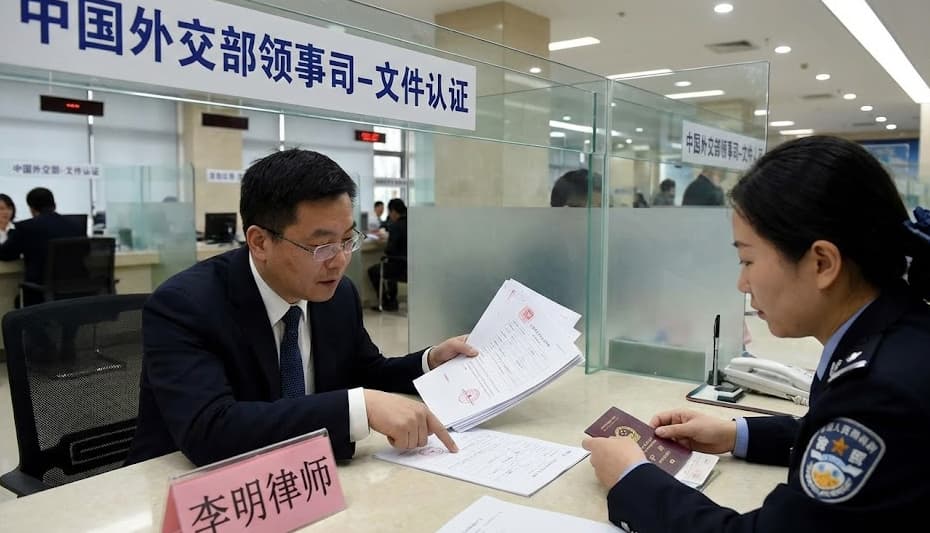China’s Charity Law shapes how charitable organizations work, raise money, and stay open about what they do. It sets rules for registration, management, and public reporting to build trust and accountability.
This law tries to boost social welfare while keeping charity activities under fair and steady regulation.
This law, first passed in 2016 and updated later, encourages public participation but keeps proper oversight. It spells out what counts as charitable activity, like poverty relief, education, and environmental protection.
The law also makes organizations share information about donations and spending, so people know where their money goes. Recent changes have made transparency and government supervision even stronger.
These updates try to make giving easier and more reliable for everyone in society.
Key Takeaways
- The law gives clear standards for how charities in China work and report what they do.
- Recent updates focus on transparency, accountability, and getting the public involved in charity.
- Authorities enforce the rules to make sure donations and charity work stay legal and ethical.
Key Provisions of the China Charity Law

The China Charity Law lays out what counts as charitable work, how organizations can become legal charities, and how they must operate under government watch. It spells out the rights and duties of charities, donors, and volunteers, and puts a big focus on accountability and transparency.
Definition and Scope of Charitable Activities
Charitable activities under the law include poverty relief, education, health care, disaster response, and environmental protection. These activities must serve the public and not make a profit.
The law separates charitable organizations from other nonprofits. To qualify, an organization has to act voluntarily, legally, and for society’s benefit.
Article 2 says the law covers all charitable activities inside China, whether run by local or foreign groups. The law also sets China Charity Day on September 5 to raise awareness and get more people involved in giving.
Charitable trusts and donations are strictly regulated to make sure money is used right. You need to check the law’s definitions before starting or backing a project.
Registration and Establishment of Charities
If you want to register a charity in China, you apply with the civil affairs department at the county level or higher. The group must have a legal name, a clear mission, and enough money or assets to get started.
Charities need a governing body and bylaws that explain their mission, management, and how they’ll use their assets. The registration checks if the group meets legal standards for transparency and public benefit.
Charities can be foundations, social service organizations, or social groups based on how they’re set up. Once approved, they become legal persons and can raise money from the public if they meet extra requirements.
Groups that aren’t registered can still do charity work, but they can’t ask the public for donations. You have to keep your registration up to get tax breaks and legal protections.
Governance and Compliance Requirements
The updated Charity Law puts a strong focus on leadership supervision and internal governance. You need a board or council to oversee decisions, finances, and legal compliance.
Government agencies at all levels check up on charities. They make sure groups follow national rules and handle donations the right way.
Charities must disclose things like annual reports, fundraising results, and financial statements. This openness helps keep public trust and stops misuse of money.
If you misuse donations or fake reports, you can face penalties or even lose your registration. You’re expected to keep good records, use proper accounting, and allow audits if needed.
The law pushes for ethical management and accountability, and the Communist Party of China guides and supervises the charity sector.
Understanding charitable regulations also helps businesses manage their finances responsibly. Learn how taxation affects organizations by reading our guide, China's Corporate Tax Rate: Overview and Recent Changes.
Recent Amendments and Regulatory Updates

China updated its Charity Law in late 2023 to boost oversight, transparency, and public trust. The new rules, effective September 5, 2024, tighten fundraising, reporting, and management for public welfare organizations.
2023 Amendments Overview
The Standing Committee of the 14th National People’s Congress passed the changes on December 29, 2023. This is the first big revision since the law started in 2016.
You’ll see a stronger push for accountability and following the rules. The law now spells out roles for supervisors and gives clearer definitions for charity work, online fundraising, and foreign donations.
Charities now have to publish their operations and finances online through official platforms. This should make it easier for the public to get real information.
Key changes include:
- Expanded scope of what counts as charity work.
- Clearer steps for registration and yearly reviews.
- Stricter penalties for misusing or mishandling donations.
Fundraising and Financial Reporting Changes
The new rules make it harder to raise and manage money the wrong way. Only registered charities can do public fundraising, and they must use approved online platforms watched by the Ministry of Civil Affairs.
You need to make donation info accurate, traceable, and verifiable. The law now asks for quarterly or yearly financial reports that show where money comes from, how it’s spent, and admin costs.
If authorities spot problems, they can stop your fundraising. If you break the rules again and again, you could get fined or lose your right to raise money.
The law also supports third-party audits to build trust. Charities must spend money only on what they promised, and if they change plans, they have to explain it publicly.
Impact on Public Welfare Organizations
For public welfare groups, these new rules bring both good and tough news. You get better legal protection for real charity work, but you also face higher standards for transparency and paperwork.
Organizations must set up internal systems to track donations, spending, and project results. Leaders can be held personally responsible if things go wrong.
The law encourages government agencies and social groups to work together to improve services in education, health, and disaster relief.
Some local governments now offer capacity-building programs to help charities meet the new rules. If you follow these, your group’s credibility and chances for support go up.
Many charitable organizations in China operate under specific business structures. Discover how these entities are formed and managed by reading our guide, Types of Companies in China: A Comprehensive Overview.
Legal Framework and Enforcement

China’s Charity Law gives lawmakers and regulators clear jobs to do. It spells out how charities must register, report, and operate under state watch to keep things open and honest.
Role of the National People's Congress
The National People’s Congress (NPC) and its Standing Committee make and update the Charity Law. You depend on this group to set the legal foundation for charity work and to make sure the law fits with national goals.
The NPC passed the original Charity Law in 2016 and approved big changes in December 2023, which started on September 5, 2024. These changes made rules for fundraising, financial disclosure, and cross-border donations even tighter.
The NPC decides what counts as a charitable organization, sets public fundraising standards, and offers tax breaks. It also lays out penalties for breaking the law.
You could say the NPC shapes China’s whole nonprofit sector. It makes sure charity work helps the public and matches government and social stability goals.
Supervision by Civil Affairs Departments
Civil Affairs departments at every level enforce the Charity Law. They handle registration, daily checks, and reviews of charities.
You must register with these departments before you can raise money from the public or get big donations. They look over your financial reports, yearly audits, and public info.
Civil Affairs keeps a public database that tracks registered charities, their projects, and if they follow the rules. Donors can check this database to make sure a group is legit.
If you break the law, these departments can warn you, stop your work, or cancel your registration. Their job is to make sure charity work stays legal, well-run, and in line with government rules.
China’s charitable culture is deeply connected to its rich history and traditions. Explore a fascinating part of that heritage by checking out our article, Chinese Stamps: A Brief History and Valuable Collectibles.
Final Thoughts
Understanding the China Charity Law is essential for any organization or donor involved in charitable activities within the country. The law outlines how charities must operate, ensuring transparency, accountability, and compliance with government regulations.
Whether you’re setting up a foundation, managing donations, or navigating recent amendments, having expert legal guidance can make all the difference. To ensure your charity operates smoothly and lawfully under China’s legal framework, it’s best to seek professional advice.
For personalized assistance, consult China Legal Experts today and get clear, reliable guidance tailored to your charitable goals.
Frequently Asked Questions

What are the main regulations governing charitable organizations in China?
China’s Charity Law explains what counts as charity work and who can register as a charity. You have to register with the Ministry of Civil Affairs or a local branch. The law controls fundraising, financial management, and public reporting to keep things honest and protect the public.
How does the Chinese Charity Law impact foreign NGOs operating in the country?
Foreign NGOs must register with the Ministry of Public Security and work with approved partners or set up a representative office. You can’t raise money or hold public events without permission. The law says foreign groups must fit with national security and social stability policies.
What are the reporting and transparency requirements for charities under Chinese law?
You have to share your registration details, fundraising activities, and how you use donations. Annual reports and audits are required to show how you manage donations. These reports must be posted on government websites so the public can see them.
How are charitable donations taxed in China?
Donations to registered charities may get you a tax deduction under Chinese law. Both people and companies can claim deductions, but only up to certain limits. The charity must be officially approved for your donation to count for tax breaks.
What are the legal implications for non-compliance with the Charity Law in China?
If you don’t follow the law, authorities can stop your work, cancel your registration, or fine you. Serious issues, like misusing donations or false reports, can lead to criminal charges. Civil affairs departments watch compliance closely.
Can individuals establish a private foundation in China, and what are the conditions?
If you want to set up a private foundation in China, you'll need to meet a minimum capital requirement. You also have to register with the right civil affairs authority.
The foundation should focus on charitable work. You'll need to follow strict rules for governance and reporting.
You can't use the funds for personal gain or profit. That's just not allowed.
Subscribe to receive updates
Subscribe to receive the latest blog posts to your inbox every week.






